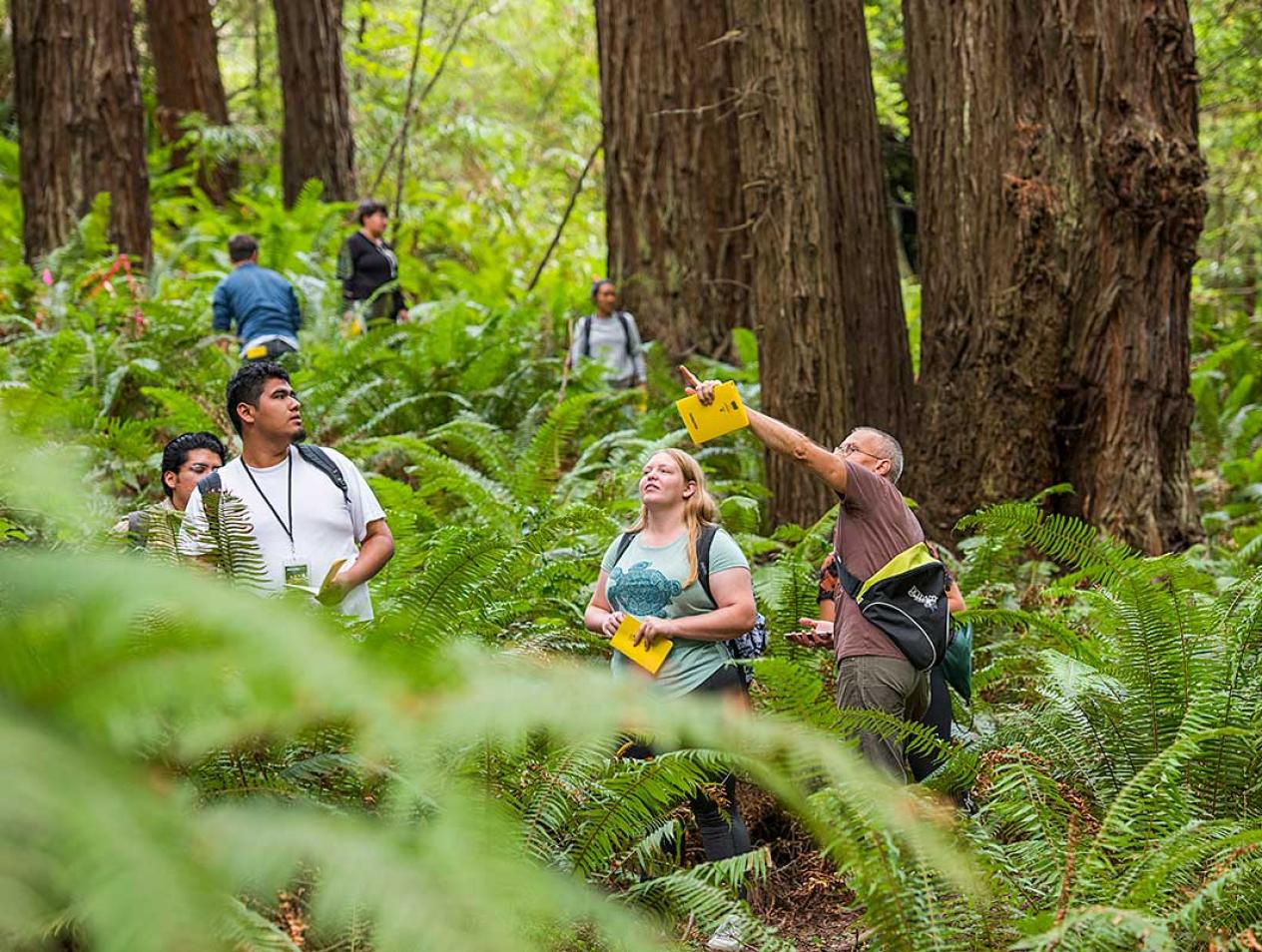Breadcrumb
College of Natural Resources & Sciences
Get Your Hands Dirty Studying Science on California’s North Coast
There’s no better place to study science than at Cal Poly Humboldt. Our community is a living laboratory with the Pacific Ocean, ancient redwoods, and other diverse ecosystems for you to explore.
The College of Natural Resources & Sciences boasts a wide variety of science-focused areas of study, from biochemistry to zoology. Our multiple fieldwork opportunities, Place-Based Learning Communities, and extensive research faculties paired with our stellar faculty and staff create an environment for you to feel inspired, challenged, and engaged with the science all around you.
Undergraduate Research
Many universities reserve research experience for graduate students. At Cal Poly Humboldt, you may conduct your own research or assist professors with their projects as early as your freshman year. Either way, you’ll put theory into practice, building a fundamental understanding of concepts and methodologies. With opportunities to present at local and national conferences, you’ll learn how to explain your findings, too. Experiences like these offer a glimpse of what it’s like to be a professional scientist and will help you discover your passion.
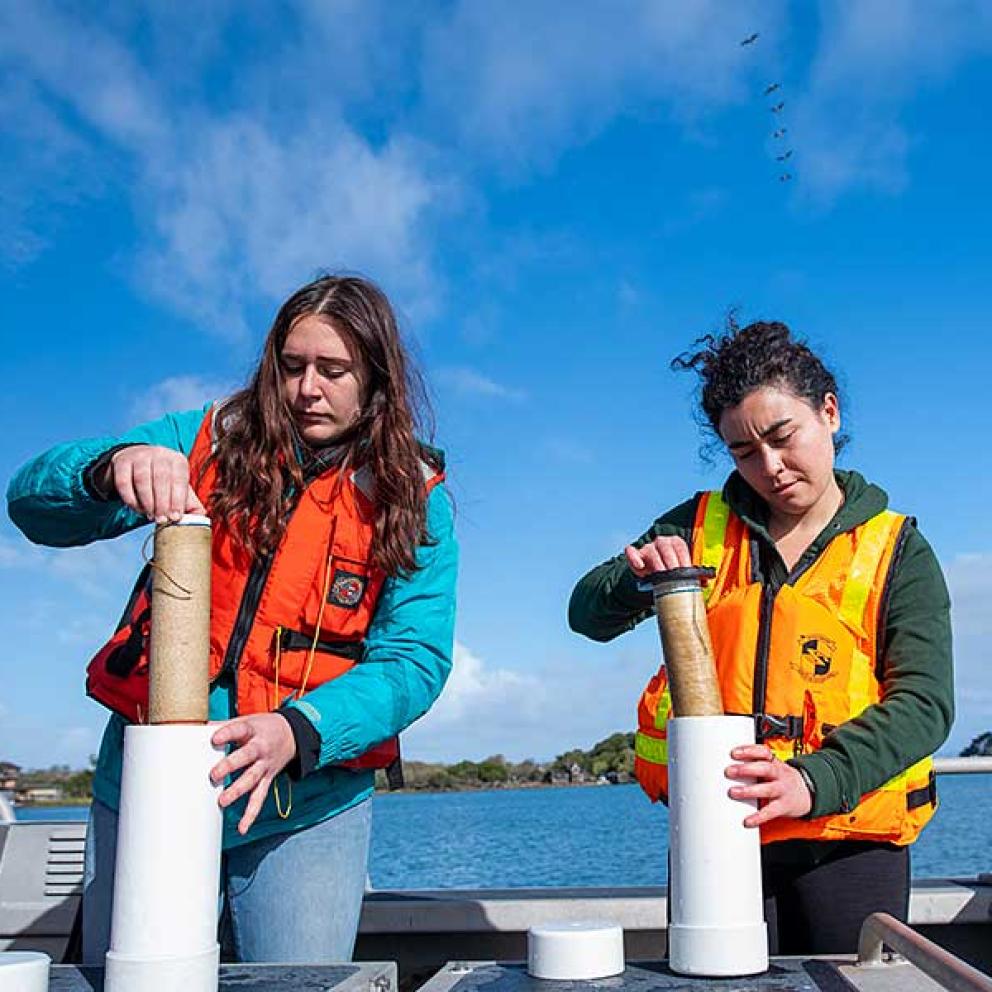
Fieldwork
Located on the North Coast of California, Humboldt is surrounded by ancient redwoods and close to the Pacific Ocean, mountains, and rivers. You’ll find the region’s natural environment is the perfect outdoor classroom where learning happens through real-world experience. Track elk, hike through forests to measure redwoods, or take water samples from California’s second largest river—Humboldt provides a wide range of opportunities for fieldwork, which helps develop critical thinking and collaboration skills, and a passion for learning that will take you far in life.
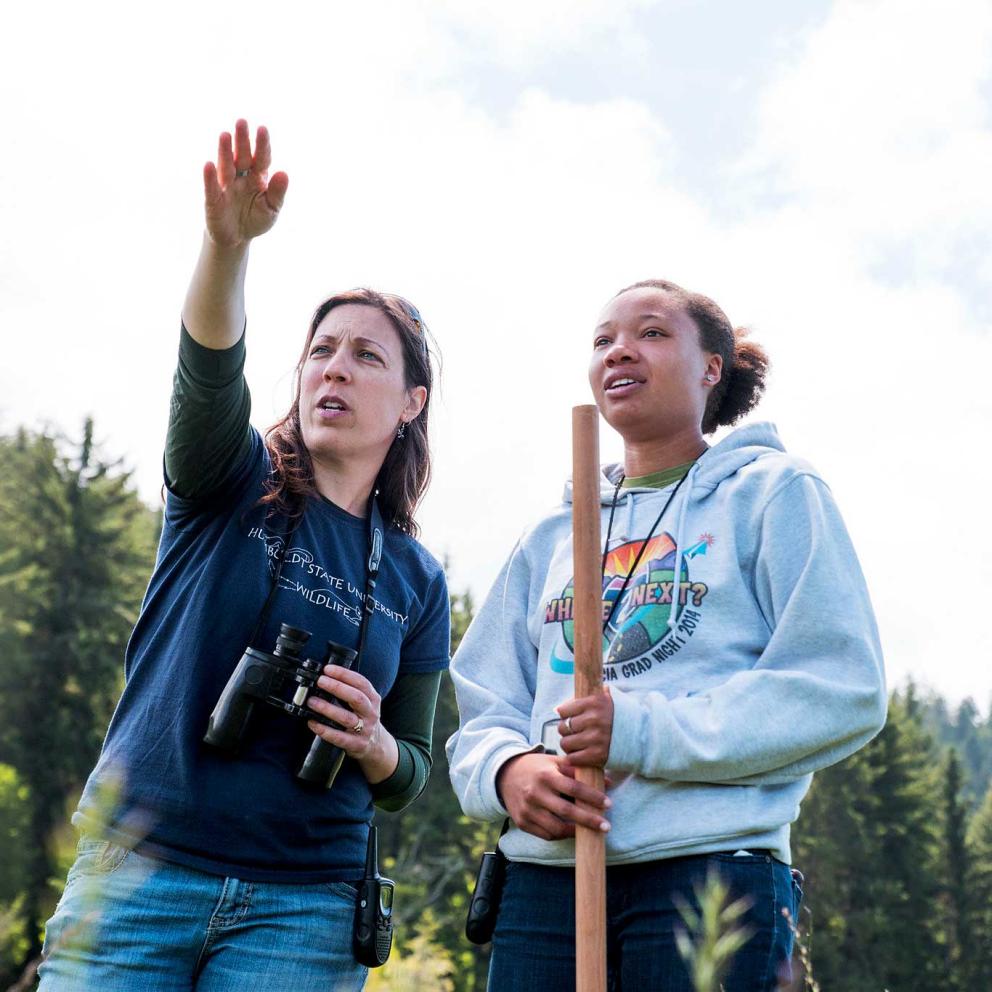
Personal Attention
College is a time to expand your horizons and find out who you really are, and our attentive faculty are here to support you every step of the way. From the moment you begin your program, you won’t be just another face in the crowd. You’ll be part of a community as you get to know your professors. They’ll challenge you, but they’re accessible, too. Whether through mentoring or one-on-one feedback, they’ll help you build the knowledge and skills to be successful at Cal Poly Humboldt.
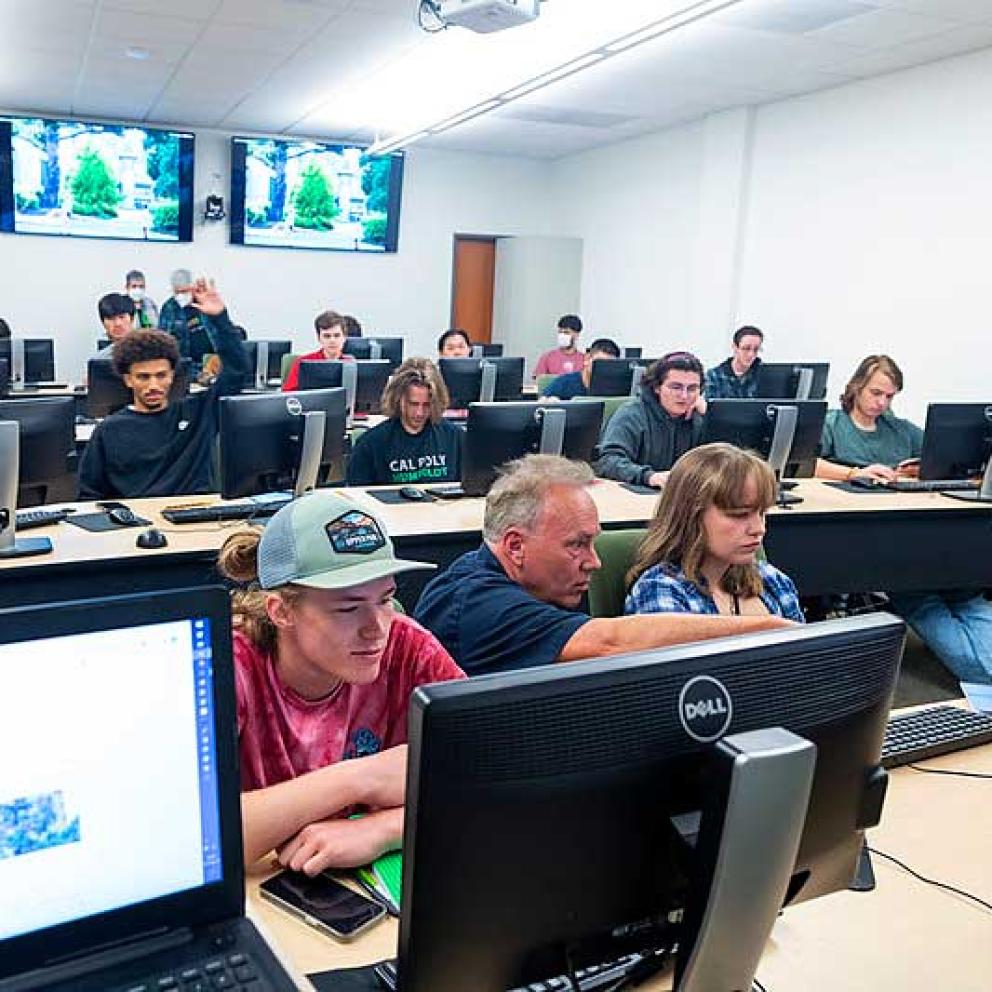
Undergraduate Programs
Cal Poly Humboldt offers a wide array of science majors and programs, led by highly skilled faculty who foster a supportive environment. You will develop the critical thinking skills needed to solve complex problems in science, engineering, and natural resources, leaving you well-prepared for professional careers and higher levels of study.
Graduate Programs
Cal Poly Humboldt has an established reputation for its graduate programs in the biological, environmental, engineering, and natural resources sciences, which provide the knowledge and experience necessary to address today’s scientific problems.
Equipped for Excellence
Cal Poly Humboldt has a diverse range of research facilities, labs, and special collections as essential tools for conducting research and gaining real-world experience. Utilizing a renewable energy technology research center, a marine laboratory, and the largest botanical collection in the CSU system, you will actively engage with research during your undergraduate years.
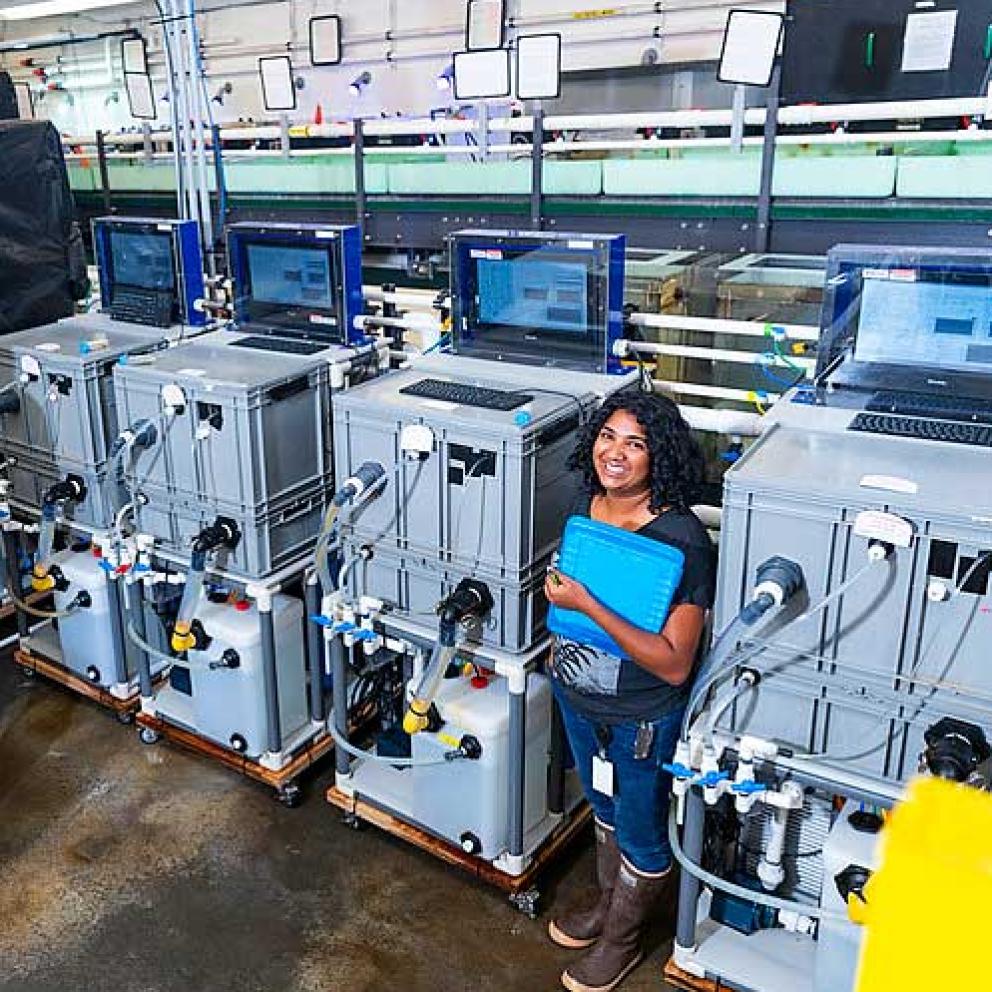
Place-Based Learning Communities
Learning goes beyond the classroom at Humboldt—we learn from the environment we are in. Our Place-Based Learning Communities provide you with a tight-knit community of like minded peers before classes even start.
We start right away—you’ll be immersed in major-related fieldwork, seminars, and classes with students like you before the semester even begins. These connections will help you navigate college life, gain confidence, succeed academically, and gain a sense of belonging within the Humboldt community.
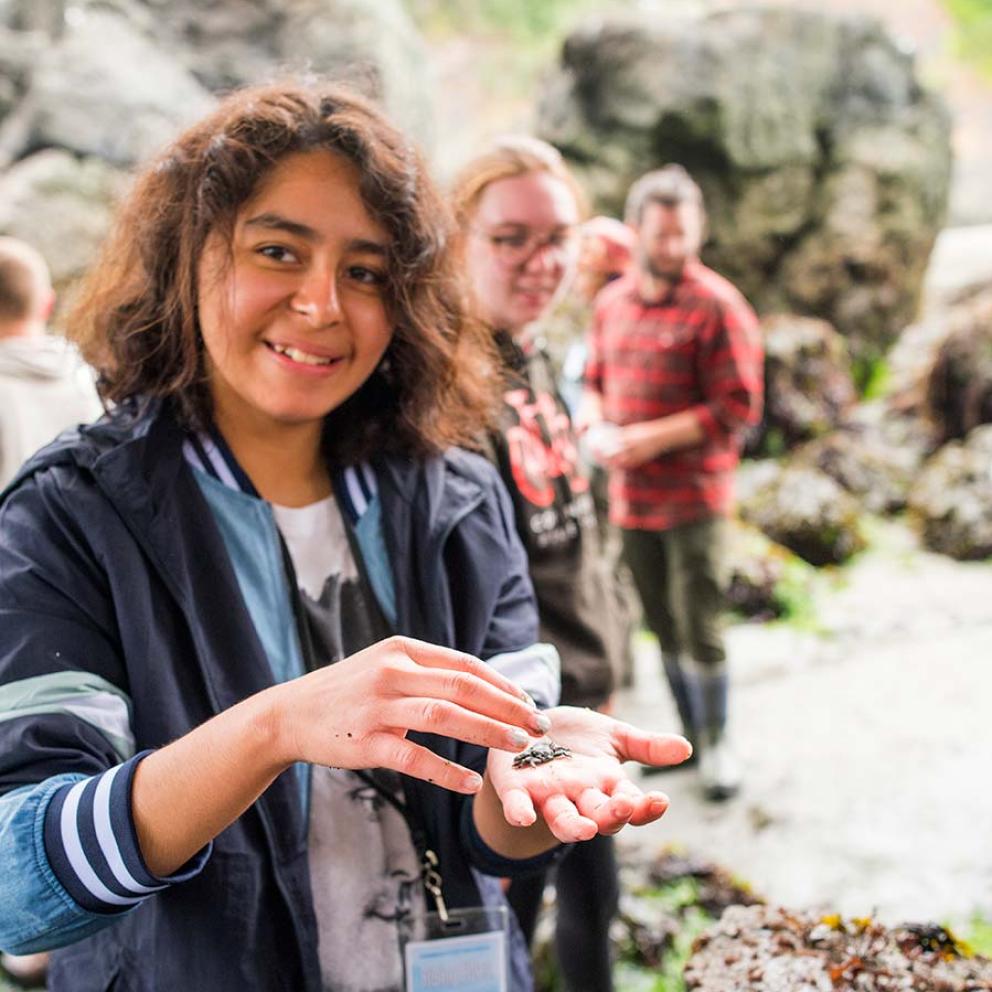
Alumni Updates
Danial Nayeri
Wildlife, 2023
After earning his master’s degree in Wildlife from Cal Poly Humboldt, Danial moved to College Station, Texas, to begin a new journey as a Ph.D. student. Danial is currently a research graduate assistant at Texas A&M University, working in the Human Dimensions of Natural Resources Lab under the supervision of Dr. Gerard Kyle. Danial's research focuses on human-wildlife conflict mitigation through the lens of social psychology. His experience at Humboldt helped shape him into a more competent and prepared graduate student.
Albert Ochoa-Castillo
Chemistry, 2022
Albert is currently in the second year of his PhD studies at Colorado State University, focusing on the fundamentals of plant cryopreservation. He recently received the prestigious NSF Graduate Research Fellowship, one of the country’s top STEM fellowship programs. Albert crafted a method to visualize sucrose in plant cells and proposed a technique for simultaneous imaging of two molecules in plant tissue. His research explores cryoprotectant-cell interactions using advanced microscopy methods. After graduating, Albert aims to teach chemistry at a primarily undergraduate institution, prioritizing research inclusion for first-generation and Hispanic students to enhance diversity in scientific fields.
Leah Meyers
Botany, 2022
Leah was hired as a Botanist under Stantec to work in environmental consulting in August 2022 and has recently completed her first year there. She moved to Santa Barbara for this job and has had a wonderful experience working with other biologists and getting out in the field. Living in Santa Barbara is a blast, and Leah is grateful to be a part of protecting California's amazing wildlife—but she says her heart is always in the Redwoods!
Achievements
Find out what our students, faculty, and staff are being recognized for.
Dr. Sarah Jaquette Ray
Environmental Studies
Dr. Sarah Jaquette Ray interviewed Alexander Menrisky, author of a new book called Everyday Ecofascism, about the violent side of environmental politics for the University of Wisconsin web-magazine and podcast, Edge Effects. You can find the interview and more about the book here: https://edgeeffects.net/alexander-menrisky/
J.R. Patton, S.W. Smith, A. Lomax, M. Hellweg, L. Dengler, D.S. Dreger
Geology
I have been invited by the United States Geological Survey to speak at their annual Northern California Earthquake Hazards Workshop (February, 2026) to discuss a recent paper of which I was lead author. The paper is entitled "Large Repeating Gorda Intraplate Earthquakes Occurring Along an Inherited Weak Zone near the Mendocino Triple Junction" and summarizes a new way to look at offshore earthquake hazards. It was published in the Seismological Research Letters journal (DOI: 10.1785/0220250005).
Erika Anderson, Micaela Gunther, Marie Martin, Kristine Pilgrim, Scott Demers, Sean Matthews
Wildlife
Former wildlife graduate student Erika Anderson published her thesis research on state-endangered Humboldt martens in the journal Global Ecology and Conservation. This research is published open access and aims to establish a baseline for an endangered population that will inform future monitoring to estimate apparent survival and recruitment, additional relationships to environmental conditions and change, and demographic trends over time. https://doi.org/10.1016/j.gecco.2025.e03980






